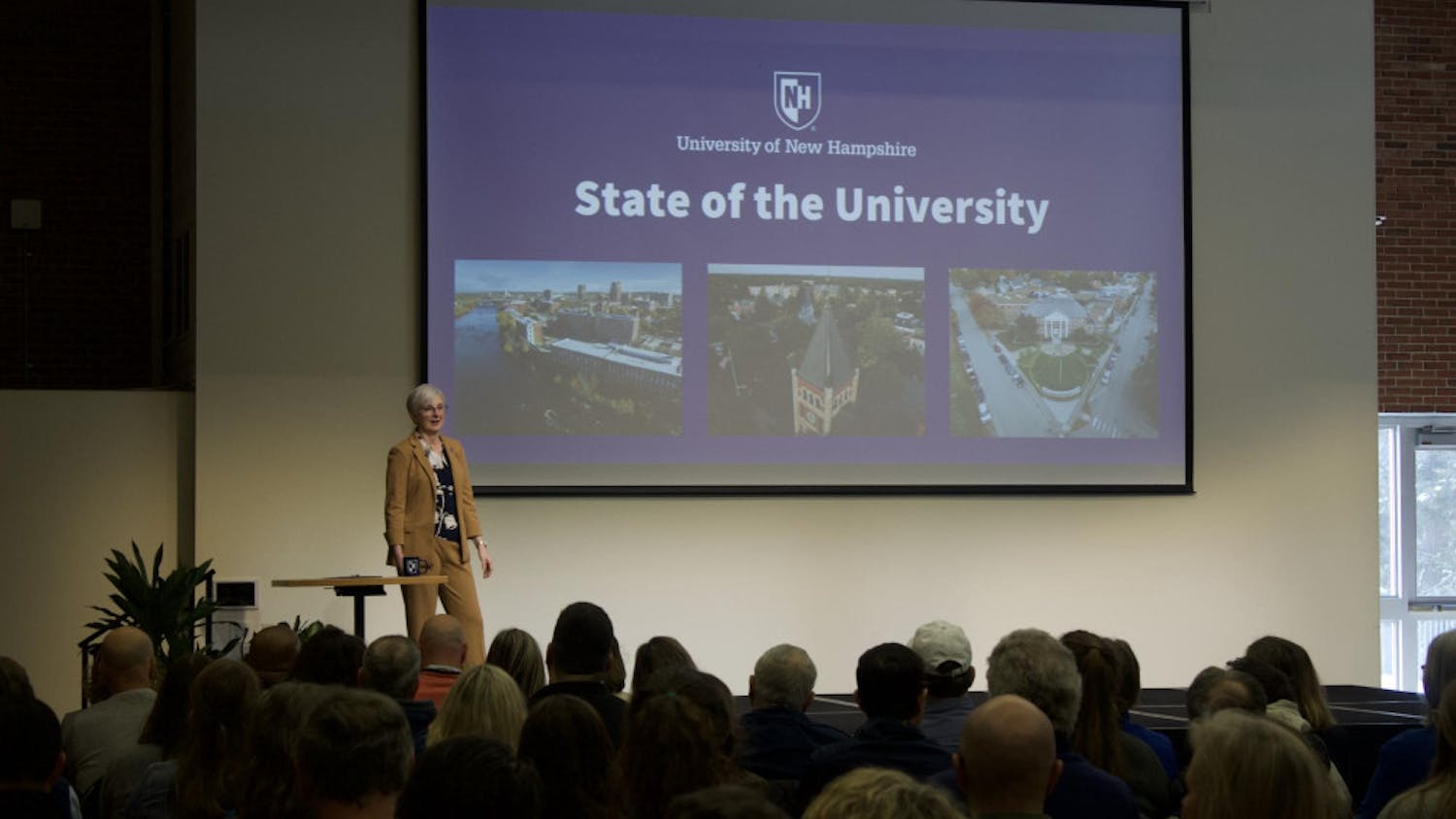By Hadley Barndollar, Staff Writer
When the campaign trails are set ablaze, New Hampshire is the political hot spot. University of New Hampshire political science professors Andrew Smith and Dante Scala want to ignite the flames as they prepare to launch a massive open online course (MOOC) focused completely on the New Hampshire presidential primary.
The course, which is expected to launch in mid-October, will give enrollees a behind the scenes, exclusive look at what Scala describes as “the ingredients that are necessary to win a primary in New Hampshire.” Focused around taped lectures and discussion boards, the course will touch upon everything political and primary-related in the Granite State.
“This course is not meant to be ‘here’s the New Hampshire primary, here’s what’s going on.’ You can watch TV, you can read the newspaper to find that out,” said Smith, who has been teaching courses on the primary since 2003. “This is to give students, journalists and political junkies around the world a background on New Hampshire, the electorate and the history of the primary and how it works, as well as all of the political science and historical context about the process.”
The production of the course has drawn in a melting pot of specialists. At the heart of the MOOC are Smith and Scala, who write the scripts for each segment and are essentially teaching the entire course.
Next up is journalism lecturer Meg Heckman, who focuses on digital media and data research. Heckman, who writes for the capital section of the Boston Globe, has been covering politics since her days in the newsroom at the Concord Monitor.
Additionally, Dan Carchidi, the assistant director in the information technology department, has been a pioneer for the digital construction of the project. The MOOC also has student interns assisting with certain tasks.
When designing the motives for the course, Smith and Scala had certain groups in mind: students, self-confessed political junkies and journalists.
“We want to teach a new generation of New Hampshire citizens about the primary, which is part of their heritage in a way,” said Scala, referring to students across the state.
Branching directly from that, Smith looks at the New Hampshire primary as an “incredibly quick escalator” for people pursuing careers in politics and political journalism.
“New Hampshire has a wealth of people that have been involved in the primary who have gone on to incredibly successful careers simply because they were part of the New Hampshire primary,” Smith said. “There are a lot of people we have to talk to who got their starts working behind the scenes for campaigns in New Hampshire, whether it be politics directly or covering them.”
Sticking with the journalism theme, Scala sees the MOOC as an opportunity to give back to New Hampshire, and that includes informing tenderfoot journalists about the ropes of the primary.
“There is a lot of turn over in media these days,” Scala said. “A lot of journalists who are going to cover the primary in 2016 might very well be covering it for the first time. Every four years, there is a learning curve.”
As far as those self-confessed political junkies go, Scala and Smith hope this course will spark interest in those hoping to be a part of the primary process in some way.
“We’re hoping to reach out to those people who are self-confessed political junkies, those who go home at night and they don’t necessarily watch sports, but they turn on Fox or MSNBC because politics is their hobby,” Scala said.
The Scala and Smith duo will also pay a visit to the state convention for high school social studies teachers in March, hoping to pitch the MOOC as a resource to incorporate into their classes.
The MOOC will be a portal into New Hampshire politics for any interested persons across the globe. As the course is free, Smith and Scala hope it will draw an international crowd. Lasting six to seven weeks, it will consist of one-hour segments, three days a week. In addition to this, UNH students will have the opportunity to take the class in-person on campus in the fall for credit. Scala expects that there will be crossover for the students between the live lectures and the MOOC itself.
As far as enrollment numbers, Meg Heckman says that 10,000 enrollees would be an accurate goal, but they “certainly won’t complain” if they get more.
Ultimately, Scala attributes the nature of the New Hampshire primary to a deeply rooted political culture, and he’s grateful for his place in it all.
“It’s certainly a gift to be a political scientist in New Hampshire to have this event come to your doorstep every four years,” Scala said.
As for Smith, he sees the MOOC as a front row seat to the primary that historically sets the tone for the rest of the nation.
“This isn’t just a history course,” Smith said. “This is modern politics playing out right in front of us.”











